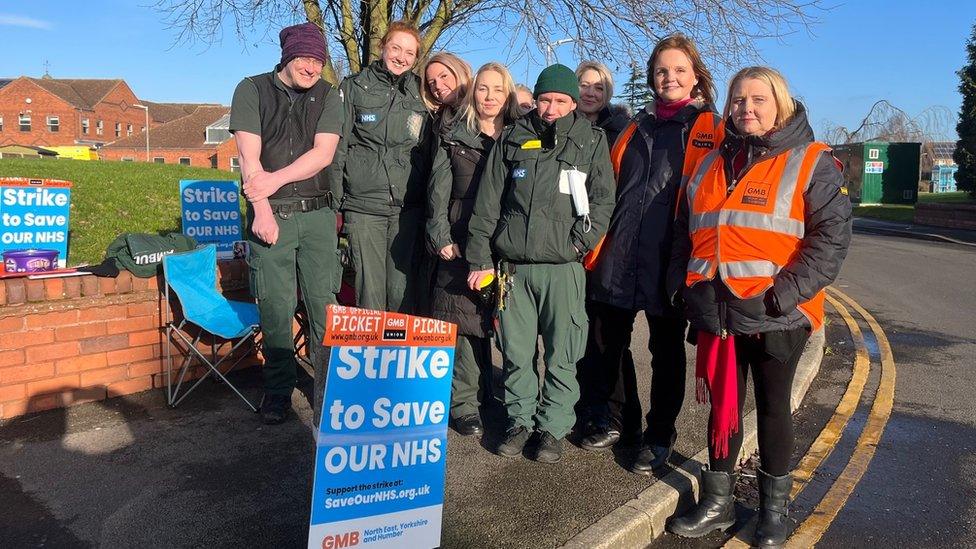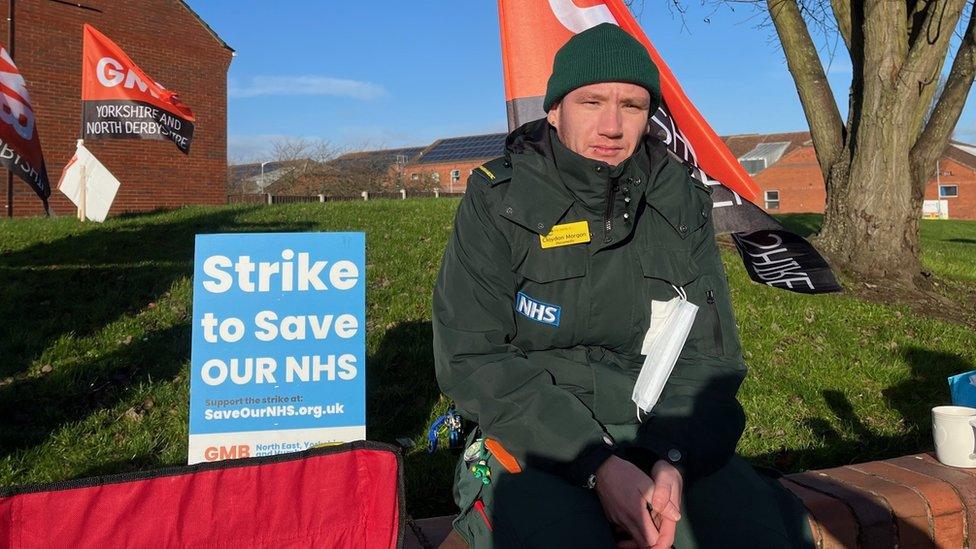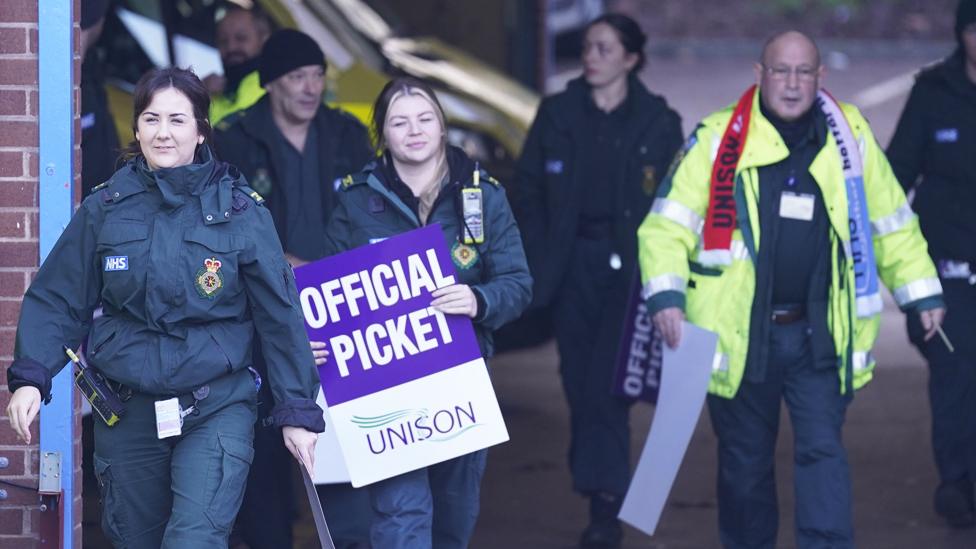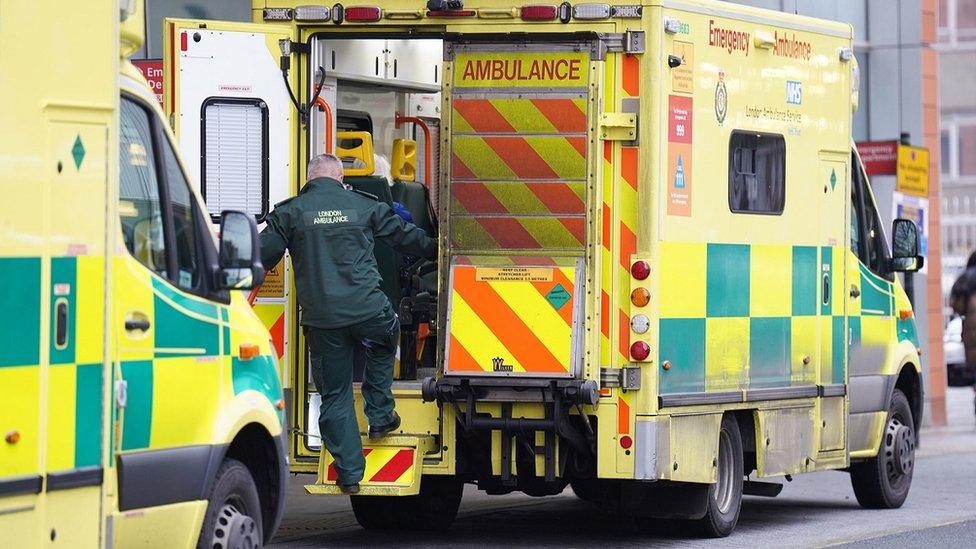Ambulance strikes: Paramedic carries toys for long A&E waits
- Published

Ambulance crew on the picket line in Goole, East Yorkshire
A paramedic has told how she turns her ambulance into a mobile entertainment centre as crews spend hours queuing outside A&E departments.
Dawn Turner was among those gathered on the picket line in Goole, East Yorkshire, on Wednesday.
She told the BBC: "I now carry children's toys, magazines and download films on my phone because I know we're going to be queuing hours."
Ms Turner said the walkout was as much about conditions as it was pay.
Ms Turner, also a GMB rep, said she joined Yorkshire Ambulance Service NHS Trust 14 years ago, and has spent the past six years as a paramedic.
Due to Goole's location, she said crews based in the town take patients to a number of the region's hospitals, including Hull Royal Infirmary, York Hospital, Doncaster Royal Infirmary and Wakefield's Pinderfields Hospital.
She said: "Sometimes we're trying to keep a dementia patient entertained for hours on end. That's hard. We'll play games with children, we'll play music, films - anything to take people's minds off the wait and keep them calm."
Such is the backlog outside A&E departments that Ms Turner said patients will often watch two or more films before they are finally seen.
It is not unusual for crews to spend the whole shift waiting to unload a patient, she said.
'It's soul destroying'
"My longest wait to unload a patient was 11-and-a-half hours," said Ms Turner. "That was about four weeks ago at York District. The patient was elderly and frail. We're queuing at all the hospitals, though, not just York, and that is being replicated across the country.
"We might do one or two jobs per shift now. The rest of the time we're queuing. When I started we'd do six to eight."
Ms Turner said crews can hear, over the radio, ambulance controllers desperately trying to dispatch ambulances to life-threatening emergencies.
"There'll be a cardiac arrest, a Category 1 call, and you'll be asked if you can attend but you can't because you're with a patient in a queue," she said. "Sometimes there won't be anyone else available either, and you're hearing all this.
"We came into this job to help. It's soul destroying."
Ms Turner believes recruitment and staff retention are vital if the ambulance trusts - and the wider NHS - are to survive.
"There has to be an incentive and that starts with pay," she said.
She said the 4.75% pay offer from the government last year was too low given the rising cost of living.

Paramedic Claydon Morgan says he has spent entire shifts queuing outside A&E departments
Some ambulance crews left the picket line, as agreed with managers at the trust, to respond to "life or limb" emergencies. Those included paramedic Claydon Morgan, who delivered a baby.
Mr Morgan, who qualified in 2014, said: "The public think this dispute is all about pay - it's not. On two recent occasions I have taken over from a colleague outside a hospital and then spent an entire 12-hour shift queuing myself.
"We are only trained to look after patients for a short period. Now we're looking after them for hours on end."

Follow BBC East Yorkshire and Lincolnshire on Facebook, external, Twitter, external, and Instagram, external. Send your story ideas to yorkslincs.news@bbc.co.uk, external.
- Published11 January 2023

- Published10 January 2023
